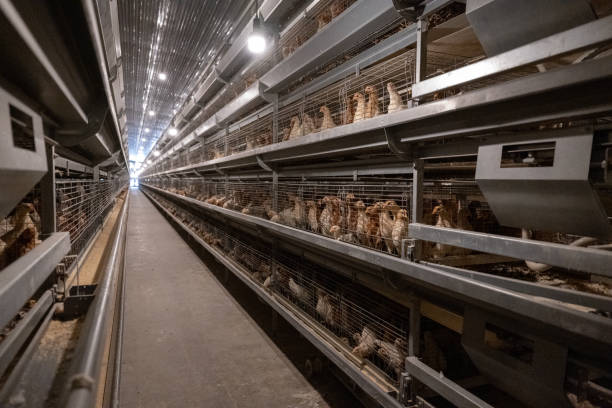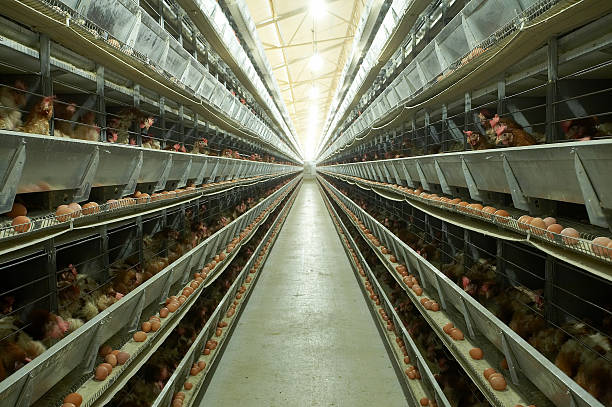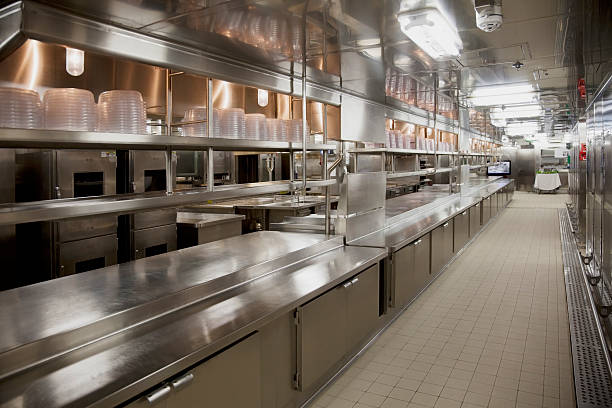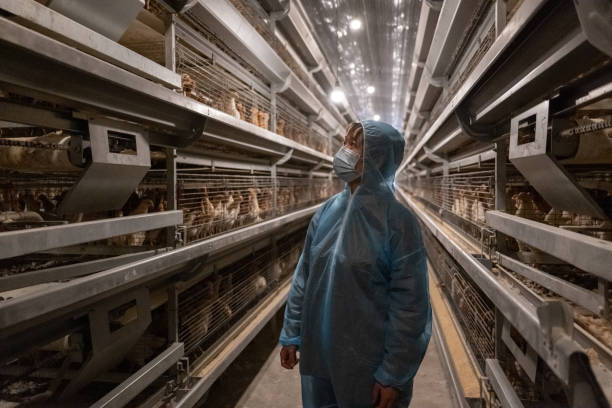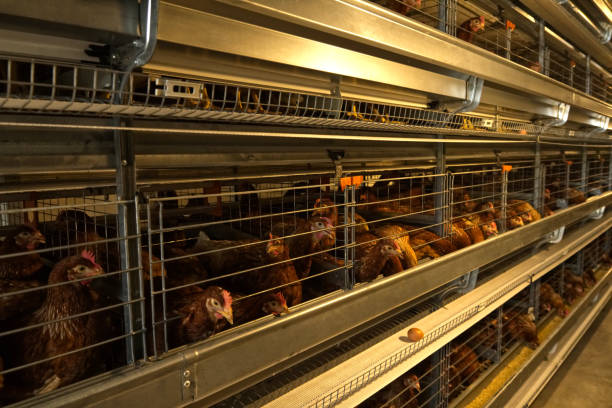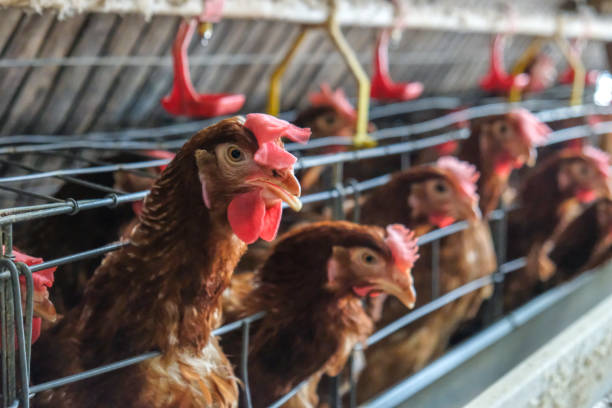Advanced Poultry Cage System for 60,000 Birds – Saudi Arabia
Advanced Poultry Cage System for 60,000 Birds – Saudi Arabia
In the modern poultry farming industry, especially in a country like Saudi Arabia where controlled-environment agriculture is increasingly vital, investing in an advanced poultry cage system isn’t just about scaling production—it’s about sustainability, efficiency, and long-term profitability. For farms aiming to manage a flock of 60,000 birds efficiently, the choice of equipment directly impacts bird health, labor needs, feed conversion rates, and egg or meat output. That’s where Livi Mechanical comes in. As a leading manufacturer of high-performance poultry farming solutions since 2012, we’ve designed and delivered turnkey systems tailored to large-scale operations across challenging climates—including desert regions such as those found throughout the Kingdom.
Our recent project in Saudi Arabia showcases how a fully integrated, automated cage system can transform poultry farming on a massive scale. The installation was set up for a commercial egg production farm with a total capacity of 60,000 laying hens, located in a remote but strategically important agricultural zone. From design to delivery and implementation, every element of this project was customized to meet regional requirements—such as extreme heat resistance, water conservation, dust suppression, and energy-efficient automation.
What sets our poultry cage systems apart? It starts with intelligent engineering. Unlike traditional setups that rely heavily on manual labor and fragmented technology, our solution integrates feeding, drinking, waste removal, ventilation, lighting control, egg collection, and climate monitoring into one seamless system. This ensures minimal human intervention while maximizing productivity and animal welfare. For example, our automatic nipple drinking lines are engineered to prevent leaks and algae buildup—common problems in hot, arid environments. Meanwhile, galvanized steel construction guarantees corrosion resistance and structural integrity even after years of continuous use.
One of the biggest challenges in managing tens of thousands of birds is maintaining consistent environmental conditions inside the poultry house. In Saudi summers, temperatures can soar above 50°C (122°F). To combat this, our complete environment control system includes evaporative cooling pads, tunnel ventilation fans, temperature/humidity sensors, and smart controllers that automatically adjust airflow based on real-time data. These features not only protect flocks from heat stress—which can slash egg production and increase mortality—but also improve feed efficiency by keeping birds calm and comfortable.
The layout of the 60,000-bird facility followed a double-tier A-frame configuration using our HDPE plastic-coated wire mesh cages—a material proven for durability, hygiene, and easy cleaning. With three birds per cage module, each unit provides ample space (minimum 750 cm² per bird) to meet international welfare standards while optimizing building utilization. Manure belts run continuously under each tier, removing droppings several times a day to reduce ammonia buildup and lower infection risks. All manure is collected in sealed storage units for later composting, turning waste into valuable fertilizer—an added income stream for farmers.
Automation Beyond Expectations
Imagine starting your day without needing dozens of workers to collect eggs, refill feed troughs, or check water levels. That’s the reality with Livi’s smart poultry cage system. Every component works silently, reliably, and precisely. Our automatic feed line uses chain-driven distribution tubes that deliver feed evenly across all rows, timed via programmable logic controllers (PLCs). No more overfeeding or underfeeding—just consistent nutrition. Similarly, the centralized egg collection belt gently transports laid eggs from nesting areas directly to the grading room, reducing breakage and contamination.
But automation doesn’t stop there. We incorporated IoT-based monitoring into the system so farm managers can access real-time insights from any smartphone or tablet. Want to know the current temperature inside the shed? Check. Is the feeder running late? Get an alert. Has a fan malfunctioned? Receive an instant notification. This level of oversight empowers operators to act proactively rather than reactively—saving time, resources, and potentially entire flocks during emergencies.
Labor costs in Saudi Arabia have been rising steadily, and local regulations encourage automation to reduce reliance on manual workers. By deploying our advanced system, clients typically see a reduction of 60–70% in daily operational staffing needs. One supervisor and two technicians can now manage what previously required 15–20 people. Plus, with training provided on-site by Livi engineers, maintenance becomes simple and routine.
Tailored Support from Concept to Commissioning
Building a poultry farm capable of housing 60,000 birds isn’t something you do overnight—and it shouldn’t be done alone. At Livi Mechanical, we offer end-to-end support: site assessment, architectural planning, equipment selection, logistics, installation supervision, staff training, and post-sale service. For our Saudi partners, we coordinate shipping via container freight to major ports like Jeddah or Dammam, followed by truck transport to the farm location.
We understand cultural and regulatory nuances matter. That’s why our team communicates in Arabic when needed, adapts designs to comply with local building codes, and uses materials suited to Middle Eastern infrastructure (e.g., voltage compatibility with 380V power grids). Whether you’re a new investor entering the poultry sector or an established agribusiness expanding capacity, we tailor every detail—from cage height to aisle width—to match your specific goals.
Durability Meets Intelligence
It’s not enough for a poultry cage system to be “smart.” It must also last. In harsh environments like Saudi Arabia, inferior materials degrade quickly due to sun exposure, dust abrasion, and humidity fluctuations. Our cages are made with heavy-duty galvanized steel frames, coated with anti-corrosive layers and high-density polyethylene (HDPE) mesh wires that stay flexible and rust-free for over 15 years. Even moving parts like motors and bearings come sealed against sand and moisture.
Energy efficiency is another key focus. Our ventilation and cooling systems are designed to operate at low voltage consumption without sacrificing performance. Solar-compatible options are available upon request, aligning with Saudi Vision 2030’s push toward renewable energy adoption in agriculture. In fact, some of our clients combine photovoltaic panels with battery backups to run nighttime ventilation, cutting electricity bills by nearly half.
Perhaps most importantly, these systems are built for scalability. Starting with 60,000 birds doesn’t mean staying limited to them. Additional houses can be linked under the same management dashboard, allowing centralized control of multi-phase farms. This modular approach supports growth without constant re-investment in new tech platforms.
If you’re planning a large-scale poultry venture in Saudi Arabia—or looking to upgrade an existing facility—we’d love to help you design the right solution. Share your farm’s size, type (layers, broilers, breeders), and location, and we’ll provide a free proposal including layout drawings, equipment list, budget estimate, and timeline. Let us handle the complexity so you can focus on results.
Contact us today to discuss your 60,000-bird poultry project—our experts are ready to guide you step by step.
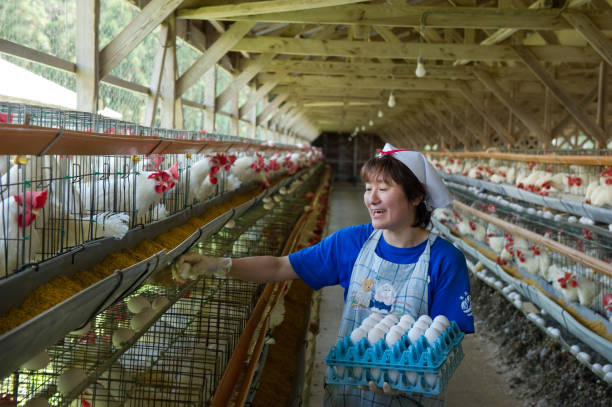
Frequently Asked Questions (FAQ)
What types of poultry cages does Livi offer for large farms?
We specialize in egg-laying hen cages, broiler chicken cages, breeder cages, and育雏笼 (chick rearing cages). Each is available in various configurations—single, double, triple, or four-tier setups—ideal for farms managing up to 100,000 birds or more.
Can the system work in extremely hot climates?
Yes! Our systems are specifically adapted for desert conditions. Features include evaporative cooling, heat-reflective roofing materials, insulated walls, and weatherproof electrical components—all tested extensively in Gulf-region projects.
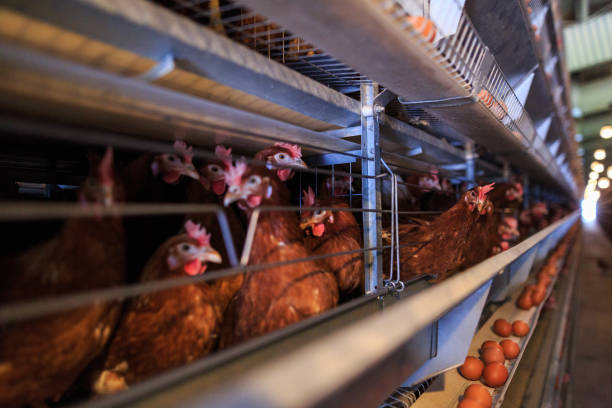
How much labor is required to operate a 60,000-bird automated farm?
With full automation, only 3–5 skilled personnel are typically needed per house. Tasks like feeding, egg collection, manure removal, and climate control are handled automatically.
Do you provide installation and training services in Saudi Arabia?
Absolutely. Our technical team travels internationally to supervise installation, conduct safety checks, and train local staff in operation and basic maintenance.
Is after-sales support available locally?
While we’re headquartered in Zhengzhou, China, we partner with regional agents and distributors across the Middle East who offer spare parts, troubleshooting, and urgent repair coordination. Remote diagnostics are also supported through our cloud app.
What is the expected lifespan of your poultry cages?
Our standard cages last 15+ years under normal operating conditions. High-quality galvanization and HDPE coating significantly extend durability, even in corrosive or dusty environments.
Can I monitor the system remotely?
Yes. Our smart monitoring platform allows real-time tracking of temperature, humidity, equipment status, and alarms via mobile app or web browser—accessible from anywhere in the world.
Are solar-powered options available?
We offer solar-compatible ventilation and lighting kits. Full solar integration can be designed upon request depending on your energy needs and sun exposure.
How long does delivery take to Saudi Arabia?
From order confirmation, manufacturing takes 20–30 days. Shipping by sea adds 25–40 days depending on the port. Air freight is faster but more expensive and usually used only for urgent spare parts.
Does Livi assist with farm design and permitting?
We provide detailed site layout plans, cage arrangement diagrams, utility connection guides, and technical specs that can be submitted to local authorities. While we don’t apply for permits ourselves, our documentation meets international standards accepted by many Gulf regulators.



